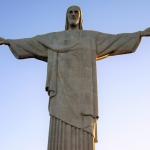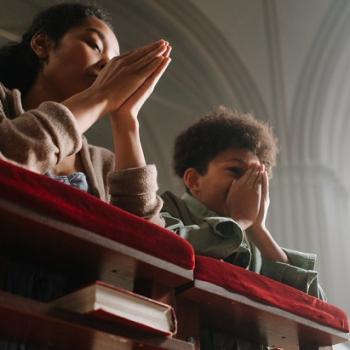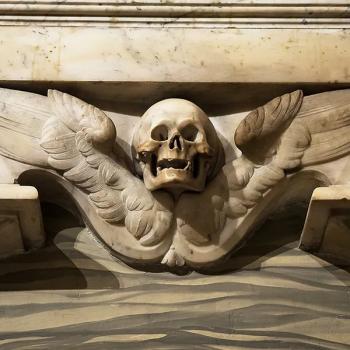By guest writer William M. Shea
The problem of belief and knowledge is not a mere “academic concern.” In fact the issue has been of paramount importance to me since I was a child. I can’t say now that is still unresolved for me because it has been resolved in good part for well over a decade. For fifty years, from the age of ten, the question of belief affected my self-understanding as a Catholic and a Christian, my religious life, my education, my twenty year practice as a priest, my teaching in Catholic institutions, my understanding of religions and my very conception of my humanity. For all those years I knew what I believed but didn’t quite know why and how I believed it. Nonetheless, as serious as the problem was it did not control my religious life entirely or any of my life’s components for I lived a life of strong and dedicated Christian and Catholic practice in spite of my many vagaries.
While I doubted some of the beliefs of the Christian tradition and my church, I did not give way to unbelief. It remained clear to me through most of those years that there was something wrong, something “out of whack” with my own life, yet my faith in God and my love of the church remained steady and, to some significant degree, kept my life steady. Before I turn to the question of belief in an intellectual setting (in the next post), let me briefly outline the genesis and progress of belief in my life.
The earliest memories of coming to life religiously were the teaching and example of my parents. They created around me a world of religious meaning. So did my Catholic schooling and my weekly attendance at Mass. My religious awareness included the love of and for God and His Son but also of suffering. I recall how struck I was as a child by the Lenten Stations of the Cross. They impacted my sense of the mystery not only of the love of God but especially of the suffering of the Son which I was taught and believed was “for me.” I think it was Chesterton who claimed that the only Christian doctrine capable of empirical proof is original sin. To me sin and suffering were not only empirical but metaphysical as well. From the outset both were mysterious, part of the wackiness of existence itself, and surely beyond my powers of understanding.
The balance shifted from the certainty of my beliefs toward doubt when I was caught in a kitchen fire at the age of nine: the pain of my burned flesh lasted for a couple of months – it took that long for the wounds to close– and during that time I prayed as I never had needed to, to be delivered from the pain. Thousands upon thousands of children every day pray to be saved from pain and most are not except by death. Much to my surprise, I wasn’t saved from pain (and surely didn’t understand the crucifixion!).
Everything and everyone around me told me that Someone was listening, Someone who could do everything, but for me in pain He didn’t do a thing. What was I to believe? That Someone heard and did nothing? That Someone watched in silence? Or that there was no one watching or listening? Or was there a deeper meaning to pain that I missed? That was my first encounter with doubt. I couldn’t see beyond suffering. I was bound by it.
Another encounter occurred during my first two years in the seminary in Yonkers, NY, at twenty years old. I fell into a deep depression which lasted, on and off, for two years. I experienced in prayer a deadening sense of abandonment often, and this in private rather than liturgical prayer. Only when I prayed with other believers could I escape the isolation. I begged and begged to be relieved of this terrible loneliness. I was reduced to demanding “What the hell do you want from me?” God had cut off contact with me. I couldn’t find Him, He was nowhere to be found, and He was silent. He wouldn’t tell me what to do! I was sent by the spiritual director to see a priest-psychiatrist once. I don’t know what he concluded but the spiritual director told me to think over the summer about leaving the seminary. I did think but didn’t leave. Why I didn’t is another story.
The third occasion that urged me toward unbelief or to some radical understanding of God that I had not been taught occurred in Gloucester MA at a Jesuit directed retreat that was much taken up with sin, suffering and redemption. The old depression rushed over me again and on the third or fourth evening the director suggested that I go out to dinner to break the routine. After a couple of Rob Roys and a lobster dinner I stood outside on the back porch of the restaurant overlooking the harbor and had the closest thing to a vision I have ever had. Frozen in depression, in my imagination I stood at the foot of the cross watching Jesus die. I became very angry and cried out (literally and loudly) “You wouldn’t save even your own Son,” and wept. This was anger at the Father who could do all but did nothing. What is the truth about God, and is there any truth to my Christian beliefs at all? To all I had been taught by the church? Even the Resurrection seemed too little too late.
I don’t think there is anything unusual in all of this. This is a common story of a Christian facing life and death, an outline of some of the existential undercurrent upon which my thinking about knowing and believing unfolded over the seventy years of my life. Do I know God? Why do I believe in Him at all?
My thinking about the relationship between knowing and believing, while it may appear to be abstract and theoretic at times, is for me thinking about wounds, mine and His and everyone else’s.
I worship and love a Father who created a cosmos which is so violent that it will in the end consume us all. In some very dark moments I think that the Hindus have something when they speak of the divine Shiva as the destroyer. Could God be as violent as His creation?
William M. Shea, Ph.D.
College of the Holy Cross (ret.)
image credit: pixabay.com/en/question-mark-important-sign-1872665/












